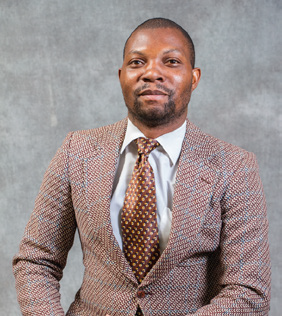Globally there are more than 100 000 chemicals in use. Furthermore, new chemicals are at an advanced stage of development. Although beneficial, chemicals also pose significant risks to human health and safety.
We encounter chemicals in everyday life due to their multiple purposes. Chemicals are essential as raw materials of industrial processes, pesticides for fumigating crops, pharmaceuticals, painting and mineral processing. Some chemicals are contained in detergents and household cleaning substances such as bleaches. The transport sector also relies on chemicals from the processing of crude oil. Substances such as gasoline and kerosene are essentially chemicals which can ignite to cause combustion processes and endless fires.
Chemicals have the potential to cause physical injuries if improperly managed as well as causing damage to environmental resources. Pollution of water bodies can arise due to chemical spillages. The effect of chemicals is further worsened by lack of awareness amongst communities on the dangers of chemicals.
Consumers should be educated on the hazards of chemicals and also be able to read chemical labels. This can enable consumer pressure to be exerted on hazardous chemicals. Alternative substances to hazardous chemicals also help to reduce the burden caused by hazardous chemicals.
In agriculture, extensive usage of pesticides is well known to cause water and land pollution. Farmers can adopt new farming methods such as integrated pest management, natural enemies and crop rotations.
Paint manufacturing also presents dangerous chemicals such as lead in paint. Alternative paints should be “lead-free”. In order to achieve this milestone, collaboration is necessary amongst key stakeholders including manufacturers, governments and civil society.
Small scale miners “makorokoza” also continue to the use of mercury and cyanide in the gold processing activities. These chemicals have potential to pollute water bodies in around the world. Through training on safe chemicals management, alternatives should be prioritised.
A chemical intensive economy is resulting in children born with birth defects, hormonal disturbances, illness and fatalities in humans and selected organisms.
Author
-

Tawanda Collins Muzamwese is the Editor in Chief of the Green Business Gazette Magazine. He is is an international consultant in sustainable business development with massive experience in training, consulting and auditing. He has facilitated capacity development in more than 100 enterprises drawn from over 30 countries. He is the founder of the sustainability think-tank called Toxiconsol Consultancy t/a African Sustainability Consultants. He is the Editor in Chief of the Green Business Gazette Magazine. He is a consultant and business coach with over 13 years experience. Tawanda is a Management Systems Consultant working on promoting development and implementation of ISO Standards (ISO 14001:2015, ISO 9001:2015 and ISO 45001:2018) in both developed and developing countries. With his inspirational and pragmatic writing style he has written cutting edge books including: 1) How to grow a Side-hustle into a viable business - Overcome Salary Dependency 2) The Leading Consultant: How become an authority in your professional field 3) Step-by-Step Guide to implementing Safety, Health, Environment and Quality Management Systems 4) Stepping on Higher Perspectives: Greatness Tips Motivational Series 5) Sustainability Guidebook for Boards and CEOs: Leading from the front Tawanda writes about sustainability, motivation, safety, health, environment and quality management. His books are relevant to both developed and developing countries. With practical approaches and case studies, he provides incisive insights into entrepreneurship. His philosophy is based on the premise that every human being has potential to make a significant difference in their lifetime. He writes books on taking personal responsibility for progression in life. He motivates entrepreneurs to implement income generating projects and determine their own financial destiny. He also motivates companies to take up sustainability initiatives. A start-up coach, public speaker, environmentalist, safety, health and quality management expert, Muzamwese bridges the gap between theory and practice through building capacity and sharing practical case studies in his books.
View all posts



